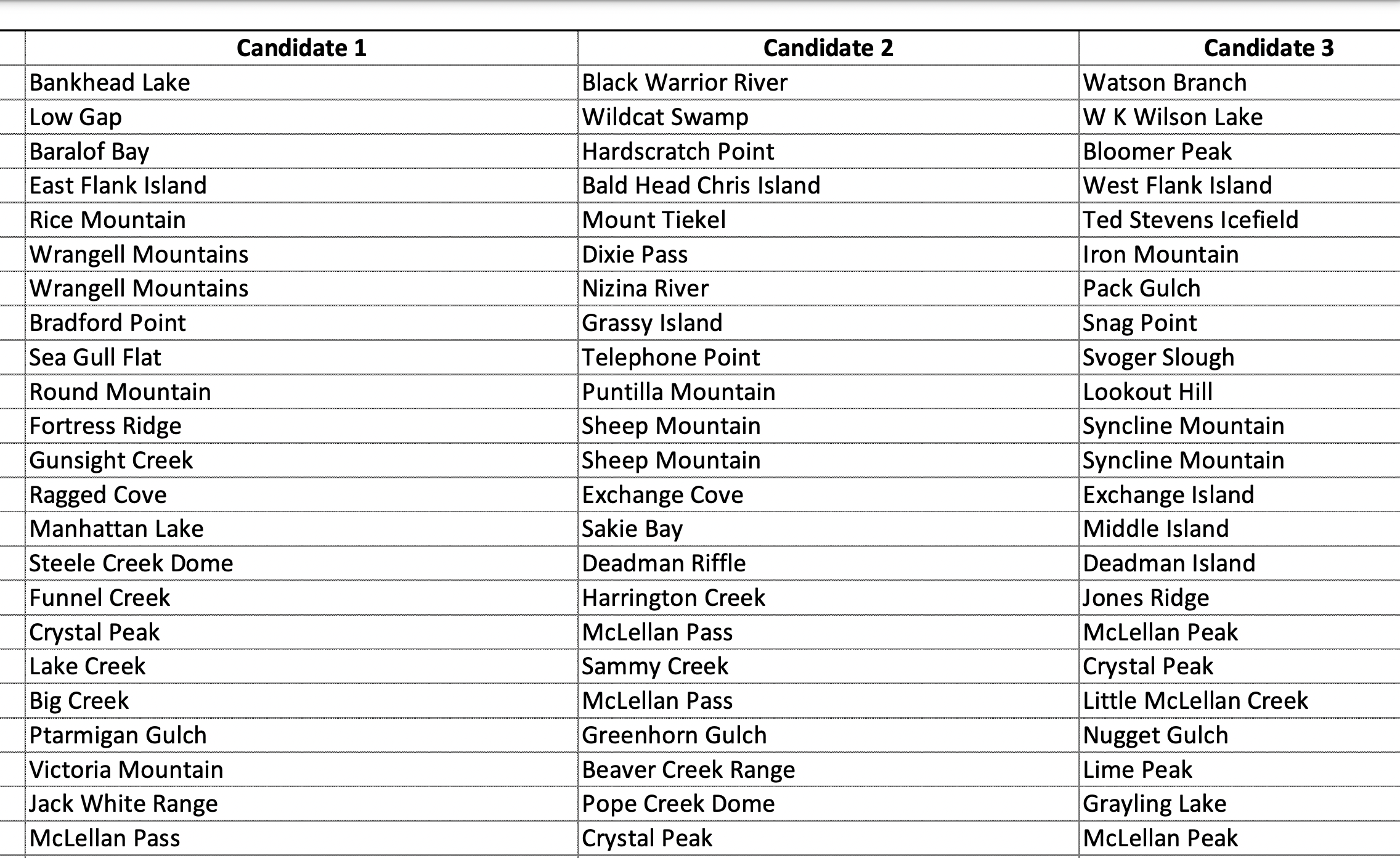
- Details
- By Jenna Kunze
The Department of the Interior is seeking public comment on proposed name changes for the more than 660 geographic places on federal lands that use a Native American slur, the Department announced on Tuesday.
Under the leadership of Interior Secretary Deb Haaland (Laguna Pueblo), the word “squaw” was officially declared a derogatory term last November. The Department of the Interior then enacted procedures to remove the term from federal usage.
A list of five candidate names for each geographic feature was developed by the U.S. Geological Survey, as directed by Haaland’s official order. Proposed additional candidate names will also be accepted during the public comment period, or for the next 30 days.
Want more Native News? Get the free daily newsletter today.
The Derogatory Geographic Names Task Force, formed by the Secretary, will ultimately recommend replacements to each of the more than 660 areas that require a name change.
The public can weigh in on each proposed name change. Five alternative replacement names were derived for each location using nearby geographic features. For example, the first name on the list in Alabama, “Squaw Shoals,” has a suggested replacement name of “Bankhead Lake.”
Proposed additional names will also be accepted during the public comment period.
To comment on the candidate names, visit the Federal Register notice for more information.
More Stories Like This
Native News Weekly (May 19, 2024): D.C. BriefsNative Artist and Former Cultural Advisor to the Chicago Blackhawks Sues Team for Sexual Harassment, Fraud
First Lady Jill Biden 'Shows Up' in Indian Country
National Indian Gaming Commission Announces Sharon Avery as Acting Chair
The Jicarilla Apache Nation Mourns the Passing of President Edward Velarde
These stories must be heard.
This May, we are highlighting our coverage of Indian boarding schools and their generational impact on Native families and Native communities. Giving survivors of boarding schools and their descendants the opportunity to share their stories is an important step toward healing — not just because they are speaking, but because they are being heard. Their stories must be heard. Help our efforts to make sure Native stories and Native voices are heard in 2024. Please consider a recurring donation to help fund our ongoing coverage of Indian boarding schools. Donate to Native News Online today and support independent Indigenous-centered journalism. Thank you.

